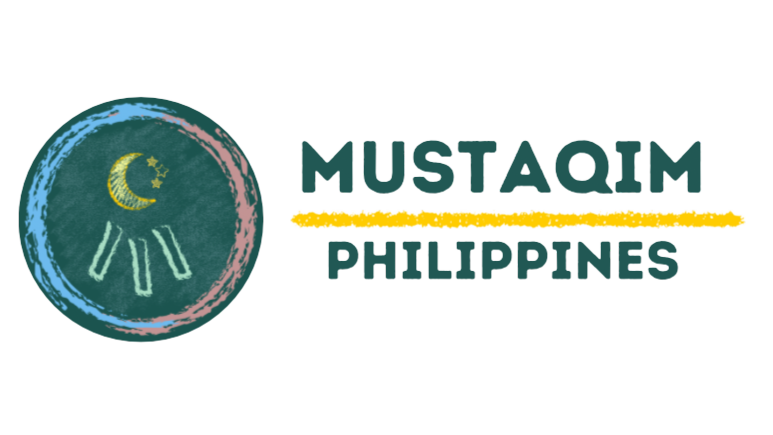As the National Elections draw near, it is the responsibility of the Filipino people to vote and elect a leader who shall steer the country into success and progress. While we are a diverse people, with various cultures, dialects, traditions, and religions, we share the same concept of leadership and how to choose the best leader of our country.
Intelligence, self-confidence, determination, integrity and sociability are the traits that are associated with effective leadership in modern leadership theories (Northouse, 2018). This means that a leader must have charisma, skill, and righteousness which are all vital in steering a country, and its people to greatness.
Meanwhile, as Filipino Muslims, it is also our responsibility to go back to the sources of our faith – the Holy Qur’an and the Sunnah – in order to be guided in choosing the best leader for our country.
The article “A Review of Islamic perspectives on leadership” gives us a comprehensive discussion on the model of Islamic leadership and what Muslims should look at when choosing a leader. The model of Islamic leadership has four dimensions: Consciousness of God, Competency, Consultation, and Consideration (The 4C model).
Leadership in Islam is based on the principle of trust (Amanah). The leader is trusted to lead a group and is accountable to both the group members and to God. To be able to fulfill this trust, humans are gifted with the ability to learn –from the beginning of creation, Adam was created as a vicegerent on earth and was accordingly instructed, ‘Note that occasion, when your Lord said the angels: I am going to place a vicegerent on earth’ (Qur’an -Surat al baqarah [2]: ayat 30).
As the article emphasizes, the concept of trust in leadership is expected at all levels of leadership within the Islamic cultural dimension – the ruler, who has authority over people, is a guardian and is responsible for them; a man is a guardian of his family and is responsible for them; and a servant is a guardian of his master’s property and is responsible for it. This concept of shared leadership unifies the organization into a team. Trust and accountability go in tandem.
Islam emphasizes accountability to God and to the people who one has been trusted to lead. ‘If a person dies having cheated the people s/he was entrusted with, he will not enter paradise’ (Muslim, 2000). Upon acceptance as the first Caliph after the death of the Prophet Mohammad, Abo-Bakr famously stated, ‘I have been made your leader, and I am not better than any of you. Support me if I do well and correct me if I do wrong’ (Al-Salabi, 2001). Accountability is further emphasized in the Holy Qur’an (Surat- banee israeel [17]: ayat 13-14):‘And every man’s fate, We have fastened on his neck: on the Day of judgment we shall bring out for him a scroll that he will see spread wide open (13), “Read your scroll! You will suffice this day as a constant reckoner against you (14).”’ Modern theories of leadership also emphasize the concept of accountability in the dispensation of leadership. As stated by Fitzpatrick, ‘leadership entails a dynamic relationship based on mutual influence and common purpose between leaders and collaborators in which both are moved to higher levels of motivation and moral development as they affect real, intended change’(Fitzpatrick, 2012). From the modern perspective, leadership is a process that entails influencing an organized group towards achieving a common goal (Northouse, 2018). Likewise, this perspective is shared in the execution of Islamic leadership.
Additionally, consultation, justice, and freedom of thought are the main principles of Islamic leadership. The framework for a moral basis of ethical leadership in Islam is centred on the willingness to submit to the Creator. Indeed, doing one’s best (Ihsan) is an important aspect of the moral responsibility of Islamic leadership.
From this, we can derive that a leader, both in modern leadership and in the Islamic perspective, is someone who is trusted by the people because of the goodness of his intention. When we trust someone, we know that his actions and plans are for the benefit of all. Also, a leader is someone who has a sense of accountability – that is, he has the responsibility to answer to all of his decisions and actions, in the face of his community, and in the face of God. A leader is also someone who is righteous and at the same time, has the ability, competency and skill to lead his people. Finally, a leader is someone who is just and listens to his people through consultation especially on challenges and matters that will affect the entire nation.
Reference: Abdallah, A. ., Çitaku, F. ., Waldrop, M., Zillioux, D. ., Preteni Çitaku, L., & Hayat Khan, Y. (2019). A review of Islamic perspectives on leadership. International Journal of Scientific Research and Management, 7(11), 574–578. https://doi.org/10.18535/ijsrm/v7i11.sh02
